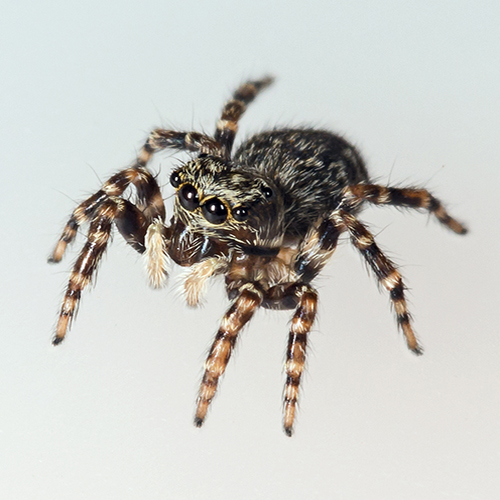
Spider Myth Resources
Explore even more! Additional spider resources and more myths (poor spiders can't catch a break!).
Fact: Probably everyone who reads a lot of newspapers has seen one of these stories, which crop up every few years. There is rarely a real spider associated with such cases, which basically result from physicians' near-total lack of spider training and from the news media's love of "scare stories."
I don't have full details of cases that happened in other parts of the country, but it is certain that spiders did not cause the two most notorious cases in Washington State. In one case in the late 1980s, an unknown spider bit a man working under a filthy derelict car in Morton, Washington. Becoming ill, he was rushed to Harborview Medical Center in Seattle, where eventually an arm was amputated. All the local media blamed the spider with great gusto. None of them published any correction when lab work revealed that the puncture had become infected with Clostridium perfringens, a gangrene-causing bacterium, and the man's symptoms were not caused by the spider venom at all.
On January 1st, 2001, a man in Mount Vernon, Washington woke up with one of those "mystery bites." The man was apparently already under treatment for some condition that compromised his immune system. The man's doctors (who, as usual, knew nothing of spider geographic distribution) immediately blamed the mythical "brown recluse" spider for the resulting illness. Later they backtracked and started blaming the hobo spider, which at least occurs in the area—but not at that season! It is simply not possible that either species was present at the time and place when the man received his "bite." My belief is that the subsequent bilateral amputation had nothing to do with the "bite." But spiders cannot be sued for malpractice and cannot sue for defamation of character, so they make convenient scapegoats. One newspaper used the remarkably foolish headline "Spider takes legs of Skagit County man."
Information on this web site is not a substitute for professional medical advice, and should not be used to diagnose or treat a medical or health condition. You should consult a physician as to any symptoms that may require diagnosis or treatment. Genuine spider bites can sometimes require medical attention, but beyond that, several medical conditions commonly mistaken for spider bite can be even more serious. If you have what appears to be a serious spider bite, please contact your health care provider or local emergency services. If you have the actual spider that bit someone, always save it for identification by a professional arachnologist.

Explore even more! Additional spider resources and more myths (poor spiders can't catch a break!).